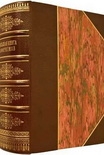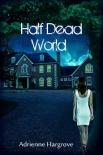Half Life Jillian Cantor (trending books to read .txt) 📖

- Author: Jillian Cantor
Book online «Half Life Jillian Cantor (trending books to read .txt) 📖». Author Jillian Cantor
“Hates it?” Pierre laughed. “I’m sure that’s not the case. What could be better than giving people education? Education is freedom, is it not?”
He sounded just like Papa, and I warmed to him. As he was a French man, born and raised in France, I didn’t think he would ever understand just how much the Russians didn’t want women to feel free or why Kaz worried for my safety. And now, here, in Paris, I did not desire to explain it to him, so instead I changed the subject. “And what do you do, Pierre?” I asked instead. “Are you a scientist, too?”
He nodded, finishing off a croissant in one large bite. “I’m conducting research in paramagnetism.”
I smiled, as if I understood exactly what he meant. And I did, a little, from my own reading about magnetic fields, but if he were to test me on the details or the differences between paramagnetisim and ferromagnetism, I would surely fail.
“Do you like to ride bicycles?” he asked me suddenly, out of nowhere.
“What?” I hadn’t ridden a bicycle in many years, not since Szczuki, with the children, around the lake in the summertime. Thinking of that now, I felt that Kaz-shaped chasm in my stomach again, and I put my own croissant down, losing my appetite once more.
“I enjoy a morning ride after breakfast,” Pierre said. “And Jacques’s old bicycle is still here, if you’d like to come with me today?”
“Oh, I probably shouldn’t.” I’d promised Hela I’d figure out the omnibus into the city this morning and that I would accompany her to meet the seamstress to discuss her wedding gown. But now the very idea of watching my sister-twin so caught up in love, so doe-eyed and bright, felt exhausting. Really what I desired to do was to get back into that comfortable bed upstairs and sleep for a long while until my head felt clearer.
“Just a short ride,” Pierre prodded. I hesitated for another moment, and seeming to notice my hesitation, he took it as an opening and broke into a smile. “I’ll have to get into the city to the lab afterward. I’ll escort you there to your sister. I promise. Take a short ride with me. Experience Sceaux by bicycle. There is truly nothing like it.”
IT WAS SO STRANGE THE WAY MY LEGS REMEMBERED HOW TO ride a bicycle, how my body remembered the pedals and my mind remembered the lightness of the wind in my hair, the sunshine upon my face. I didn’t mean to go fast, but once I started pedaling I couldn’t stop, and then I was riding out ahead of Pierre, not at all sure where we were going but following the path through the flowers: yellows and golds and pinks spinning and swirling by me in a blur.
“Slow down,” Pierre called from behind me. But he was laughing.
I was breathless and sweating. Away from Poland, and Kaz, my mind was a sieve, and time and knowledge slipped away, my head gloriously empty. I pedaled and I pedaled like fire ripping through accelerant.
“Marya, wait for me!” Pierre called out from somewhere behind me.
But I did not stop; I did not even attempt to slow down. I kept pedaling, faster and faster. Completely and utterly free.
Marie
Paris, 1903
Marie,” Pierre calls out for me as he runs into our lab, his voice quivering. He’s clutching a telegram in his hands, and he stands in that awkward way he does when his legs are bothering him, almost bowlegged, but not quite. Fear clenches in my chest at the sight of the telegram. Not again.
It has been three months since Val and Jakub died all at once, and though I have come back to work, to teaching my students in Sèvres, and to our lab, I have to force myself out of bed each morning. Force myself to dress and, only sometimes, eat, and make it through the day. Summer is long over, and now it is fall, nearly winter, but I barely notice the change in seasons, in weather and vegetation. I am numb, and I am empty. No matter what I do, what I achieve, Jakub and Val will still be dead. Papa is gone.
Bronia and I have been writing letters back and forth each week, consumed by our own private pain, but we write mostly of our daily work because even writing the other things down, admitting our sorrow to each other on paper, seems too much to bear.
Pierre waves the telegram in the air now and breaks into a smile, so it cannot be bad news, can it? He seems . . . happy? “Marie,” he says my name again. “You will not believe this.”
“What’s happened?” I ask him, sighing with relief as I observe his face. Surprise, not sadness.
“The most marvelous news in the world has just come for us from Sweden,” he says. “They are giving us half of the Nobel Prize in physics, along with Henri Becquerel, for our work on radium. You and I. Both of us, mon amour. The Nobel Prize.” He’s breathless with excitement, and he stares at me, waiting for my reaction.
His words ring in my ears. Nobel Prize. “I can’t believe it,” I say. And I really can’t.
There had been some whispers about a nomination last year, a letter to Pierre from a Swedish mathematician who had learned the committee was considering the nomination, but only Pierre, not me. Pierre had argued in his own letters to the committee that I was as important in the discovery as he. In fact, more so. And I had thought that would be the end





Comments (0)